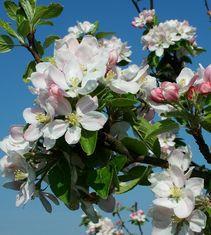
Tree-fruit growers in the UK are refusing to let last month's frost and rain dampen their enthusiasm despite the weather blighting some producers’ crops.
Fears had been growing for the English apple and stonefruit crop volume as weather conditions severely hindered pollination and fungicide application for some growers, but others have forecast increased volumes.
Jon Clark, director at Total Cherry, said: “Post-bloom cherries look to have set well and although there is probably 10-15 per cent less fruit per tree than last year, there are a lot more orchards coming into production. So I think we will have 20-30 per cent more cherries overall in the UK than last year. We are behind by about 10-14 days.”
At Worldwide Fruit, which markets cherries and plums as well as apples and pears, producers were upbeat at their board meeting this week. Marketing director Steve Maxwell said: “Stonefruit is looking really promising and has not been affected by frost. Some people may have had problems, but our biggest growers are very positive.”
Nevertheless, the consistently cool, rainy and windy conditions in April and throughout most of May have played havoc with blossom in some production areas. Ian Witherden, a farm manager in Kent for apple processor Fourayes, said: “It has just been too cold, wet and windy for the bees to do their job. It is too late now: what few blooms are left on the trees are shrivelled up and beyond pollination. We won’t get a very good crop at all this year.”
English Apples & Pears chief executive Adrian Barlow warned that the apple crop is at risk, not only of low insect activity, but also disease. He said: “We are likely to see a higher incidence than normal of scab. One of the great problems has been that growers have not been able to get out to spray, then as soon as they have, there has been a downpour and that has washed fungicide off.”
Barlow said that April frosts after a warm March that “awakened” fruit development have caused problems for individual apple growers, particularly some in the Wisbech area and in the West Midlands. “The probability is that sizes at best will be average,” said Barlow. “It is still early days, but I don’t think we will see any large-sized apples and I don’t think this will be a large crop either.”



